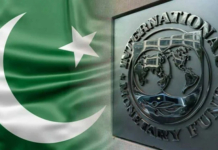Chairman All Pakistan Textile Mills Association (APTMA) North Mr. Kamran Arshad has strongly opposed the proposed increase in gas price for Export Oriented Units (EOUs) from Rs2400 to Rs2950/MMBTU, saying that this increase would be disastrous for the textile industry.
He was addressing a hurriedly-called press conference at the APTMA Lahore office on Wednesday. He was accompanied by Senior Vice Chairman Mr. Asad Shafi, Former Chairmen Adil Bashir, Rahim Nasir, and Secretary General APTMA Mr. Raza Baqir.
Chairman APTMA said that the gas tariff was Rs1100/MMBTU in January last year which was uplifted to Rs2400/MMBTU in November 2023 and is now expected to be raised to Rs. 2950/- MMBTU from the current month.
He said the export industry is dying fast and Pakistan is losing market share in the global marketplace due to the alarming rise in Energy Tariff.
The industry is being provided electricity at Rs.50 i.e. 18.5 cents/kWh, which is more than double to what the competing countries are charging from their industry, he said and added that the gas/RLNG rates for the textile sector are also nearly double that of India, Bangladesh, and Vietnam.
He lamented that the export capacity of $600 million/month in the country remains unutilized, particularly due to the high energy cost.
According to him, only a rapid increase in exports could be a remedy to meet $2billion/annum of gross external financing requirements otherwise the balance of payment would get worsen ahead and job losses and unemployment would increase manifold.
With these energy prices, he said, APTMA estimates 60-70% of the industry will shut down within a few months.
He pointed out that the domestic gas rates for the industry have been increased by over 250% in the last year.
Uncompetitive energy tariffs hinder export growth and foreign, and domestic investment in export sector, as power and gas rates for exporters are double the regional average for competing firms.
In the textile sector, he said, the component of energy costs account for roughly 18% of final product value.
He emphasized the point that the textile industry operates on very slim margin of 3 to 4%, and the present increase in gas tariff for the industry would render it uncompetitive and unserviceable not only globally but also in the local market.
It would lead to a large-scale closure of mills and joblessness of laborers, he feared.
He said the tariff increase is also against the principle of promissory estoppel which protects previous agreements and contracts.
According to him, the industry has made huge investments over the last decade in machinery for capacity enhancement. This has increased exports so far. The industry is also planning to set up 100 new plants to add at least 500,000 new jobs, he said.
Chairman APTMA was of the view that there is practically no subsidy on energy as competitive pricing is the right of any export sector to compete on a pure cost/quality basis in international competitive markets.
Senior Vice Chairman Mr. Asad Shafi an increase in gas prices would lead to national disharmony and jeopardize the sustainability of textile business in Punjab.
He said reliance on grid electricity at over Rs40/unit would make the textile industry uncompetitive in the international and local markets and this would result in shifting of the available export orders to other countries.







